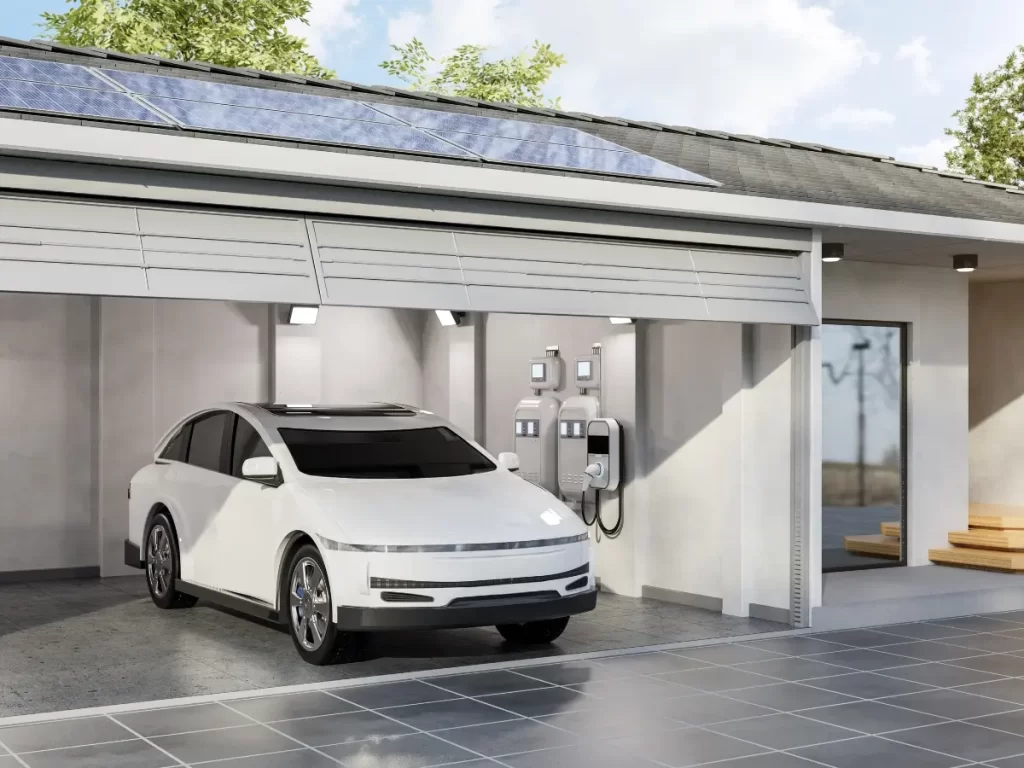
- Identify the Right Charger Type: You should use Level 2 chargers for home because they offer a good balance between charging speed and practicality.
- Check Home Compatibility: Ensure your home’s electrical system can handle an EV charger. Check if your electrical panel can handle an extra dedicated circuit.
- Understand Installation Costs: Be ready for potential installation costs, especially if your garage and electrical panel are far apart.
- Consult a Professional: Get in touch with an electrician or an EV charger installation expert to understand your needs and handle the installation.
- Explore Rebates and Incentives: Look into federal, state, and local rebates and incentives to offset installation costs.
- Secure Necessary Permits: Check local building codes for permits and compliance. This might require a licensed electrician.
- Opt for Safe and Efficient Charging Locations: Choose a location that avoids extreme temperatures, such as garages or covered areas.
- Regular Maintenance: Maintain your EV charger and battery health through regular monitoring and maintenance.
As electric vehicles (EVs) become more well-known in the United States, including the Greater Tucson Area, many Tucson homeowners want to switch to them for the environmental benefits and advanced technology,
Shifting to an electric vehicle means understanding how to set up your home for efficient charging by using the best home EV charger possible.
When you think about electric vehicle home chargers, it is important to understand the different types available and what suits your needs.
Generally, Level 2 chargers are ideal because they have great charging speed and compatibility with residential electrical systems. However, before you buy your EV, it is a good idea to know if your home’s electrical setup can support even more EV charger load.
Installing electric vehicle charging stations at home is not just about plugging in a device; it involves evaluating your daily driving habits, your electrical panel’s location, and how to run power to the charger. If your panel needs an upgrade, consider our trusted electrical panel replacement.
Also, consider how much it is to install an EV charger at home, including installation and possible upgrades to your electrical system.
As professional electricians in Tucson, we’ve installed numerous home EV charging stations and offer high quality professional electrician services.
In this guide, we will delve into the specifics of preparing your home for an EV, from choosing the right charger to understanding installation requirements and costs.
Also, be sure to listen to our electric vehicle charging station experts Jordan and Todd break it down in the latest episode of “Ask the Trade Pros Podcost”
We will also discuss the importance of professional installation, compliance with local regulations, and how to maximize the efficiency and longevity of your EV’s battery to limit your range anxiety. For emergencies, rely on our expert emergency electrician services.
Getting into EV ownership is an exciting adventure. With the right preparation, transitioning to EV charging stations from home can be smooth and hassle-free. To make your home suited for EV charging, contact our department today.
Table of Contents
Types of Home EV Charging Station
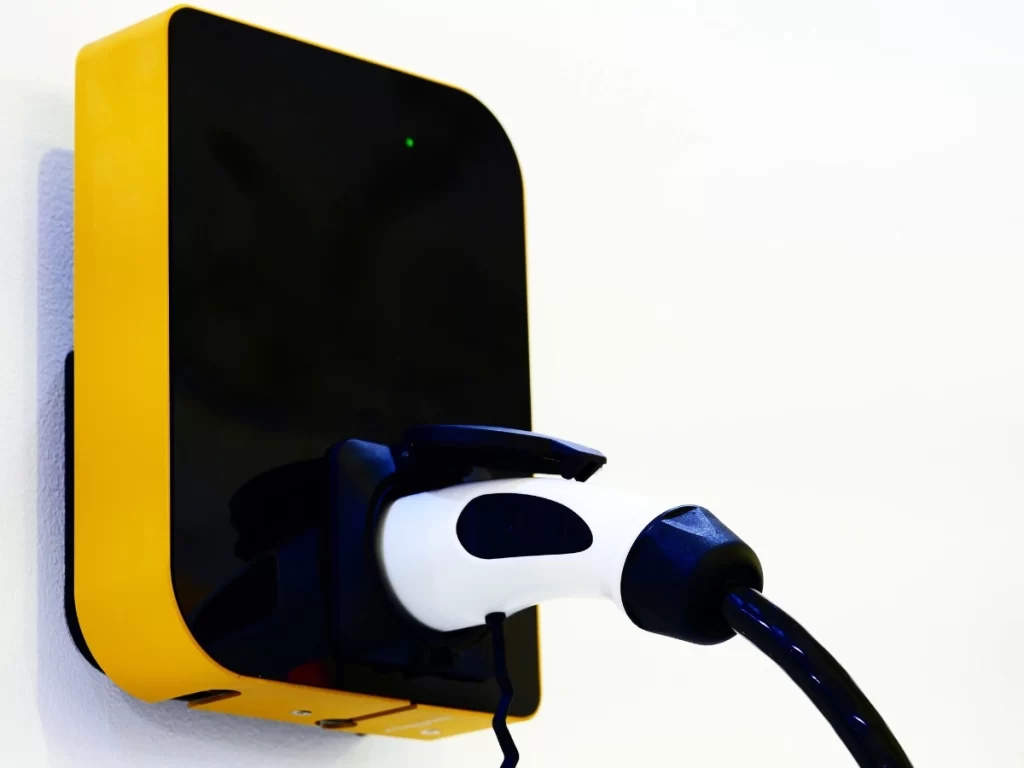
When you get an EV for your home, it is important to understand the different types of EV chargers available for a full charge. Each charger type comes with distinct benefits and challenges. Choosing the right one can significantly improve your EV experience.
Level 1 Chargers: The Standard Starting Point
Level 1 chargers are the most basic form of home EV charging station. They are convenient as they plug directly into standard household outlets.
While they don’t need special installation, their main flaw is the slow charging speed. Level 1 charging typically takes an entire day, sometimes more, to fully charge a battery-electric vehicle.
This option might be suitable for those who have minimal daily driving needs. However, it is often not useful for regular or extensive use.
Level 2 Chargers: The Preferred Home Charging Station Solution
For most homeowners, Level 2 EV chargers are the choice many go to. These chargers require a 240-volt outlet, similar to what large appliances like dryers use.
Unlike Level 1 chargers, Level 2 chargers can charge much faster. They typically fully charge an EV in just four to six hours.
This makes them a practical solution for overnight charging, ensuring your vehicle is ready each morning.
Installing a Level 2 charger requires professional expertise. It often involves upgrading your home’s electrical system and running dedicated wiring from the electrical panel to the charger.
Despite the initial setup cost, the convenience and speed they offer make Level 2 chargers a popular choice among electric vehicle owners.
Level 3 Chargers: Rapid Charging Stations, Not Ideal for Home Use
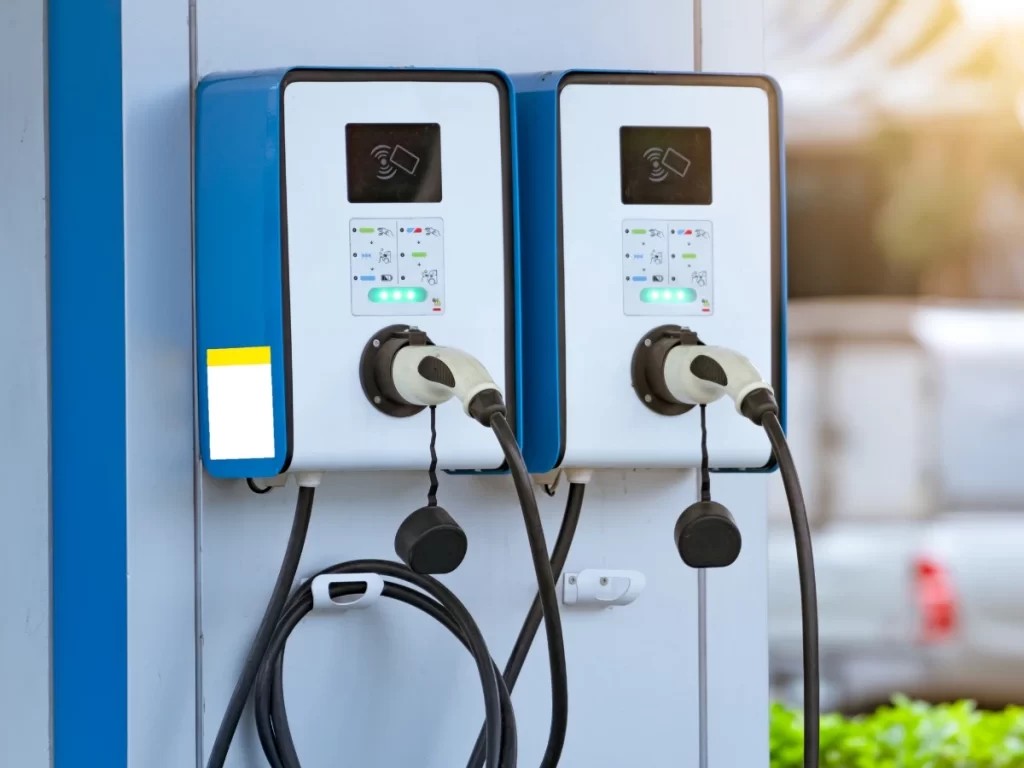
Level 3 chargers, also known as DC fast chargers, are the fastest home EV chargers, capable of charging an EV battery to 80% in about 30 minutes. However, they are often not suitable for residential use because of their high power demands and need for specialized equipment.
You will often find Level 3 chargers at public charging stations, especially along highways, designed for quick top-offs during long trips.
Choosing the Right EV Charger for Your Needs
Picking the best EV charger for home involves considering various factors. These factors include your vehicle’s compatibility, daily driving habits, and your home’s electrical capacity.
While Level 2 chargers are generally suitable for most home users, every electric vehicle owner’s needs are unique.
Consulting with a professional can provide personalized advice, ensuring a safe and effective charging setup at your home.
In the next section, we delve into preparing your home for the installation of an EV charger. We will focus on electrical system compatibility and the need for a dedicated circuit.
Preparing Your Home for EV Charger Installation
The journey to electrify your vehicle’s energy source begins at home. Setting up your electric vehicle home charging station requires thoughtful planning and understanding of your home’s electrical system.
This preparation is key to ensuring a seamless and efficient EV charging experience.
Assessing Electrical System Compatibility
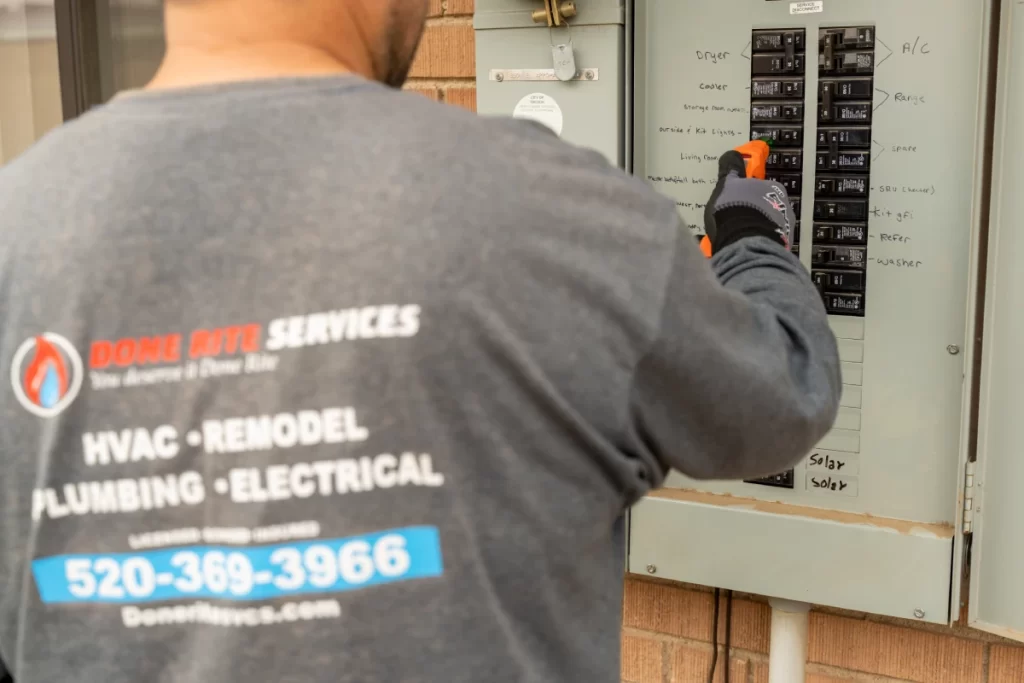
Before installing an electric vehicle charger, particularly a Level 2 charger, it is crucial to assess your home’s electrical system.
The first step is determining whether your current electrical panel can support the additional EV charger load. Many homes, especially older ones, may need an upgrade to handle this extra demand safely.
The location of your electrical panel in relation to where you plan to install the charger is also important.
The further the distance, the more complex and potentially costly the EV home charger installation process can be. It might involve running extensive wiring through walls or underground.
Dedicated Circuit: A Must for EV Chargers
For the best safety and efficiency, you should install electric vehicle chargers on a dedicated circuit. This means the charger has its exclusive line from the electrical panel, reducing the risk of overloading your home’s electrical system.
A dedicated circuit is especially crucial for Level 2 chargers, which draw a significant amount of power.
Professional Evaluation and Installation
Given the complexities involved in setting up an electric vehicle charging station at home, we recommend you consult with a licensed electrician or a professional specializing in EV charger installations.
These experts can evaluate your home’s electrical readiness, suggest necessary upgrades, and make sure the installation complies with local building codes and regulations.
Ensuring Safe and Convenient Charger Placement
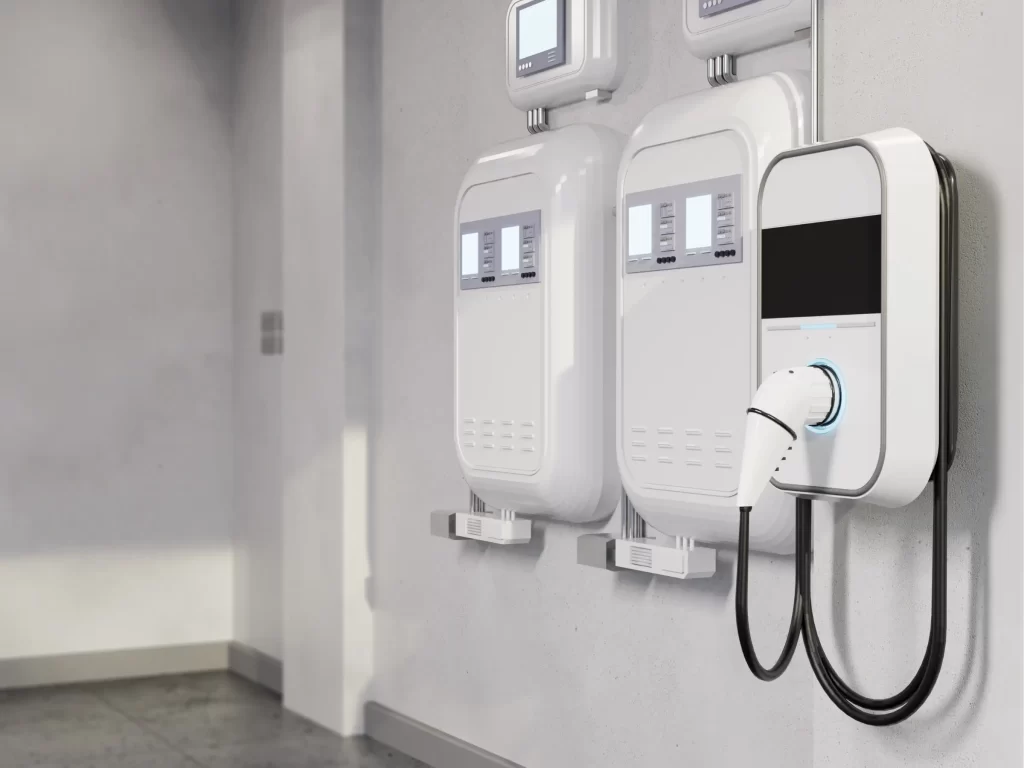
The EV charger location is not just about convenience but also about safety. Ideally, you should place a charger in a location where you regularly park your vehicle, like a garage or a dedicated parking space.
This placement not only provides ease of access but also offers protection from extreme weather conditions, which can impact the efficiency of charging and the longevity of your charger.
Finalizing Your Home’s EV Charging Setup
Once you have completed the first preparation stages, you will soon enjoy the charging EV at home benefits.
With the right setup, charging your electric vehicle can become as natural as charging your smartphone. You will have both convenience and peace of mind.
In the following section, we will explore the financial aspects of EV charging at home. These include installation costs and potential savings.
Understanding the Costs of Charging an Electric Vehicle at Home
Becoming interested in electric cars involves more than learning how to drive differently but also understanding the charging costs at home. You may wonder how much it costs to charge an electric vehicle.
We will break down the costs related to setting up and using an electric vehicle charger at home.
Installation Costs: A Crucial Investment
When you set up an EV home charging station, you need to consider the initial setup cost to install the EV charger at home. The total expense varies widely, depending on several factors:
- Type of Charger: Level 2 chargers generally cost more than Level 1 chargers, but they offer faster charging speeds. The charger’s model and features also contribute to the cost.
- Electrical Upgrades: If your home’s electrical system needs an upgrade to accommodate the charger, this can greatly add to the cost.
- Distance from Electrical Panel: The farther the location of the charger from your electrical panel, the higher the cost because of the need for extra wiring and labor.
Our company recommends professional installation for safety and compliance with local codes. Although this adds to the overall cost, it means a reliable and efficient charging system.
Operational Costs: Charging Your EV
Once you install your charger, the ongoing cost to charge your electric vehicle depends on several factors:
- Electricity Rates: The cost of electricity in your area is the primary factor. Charging an EV is generally cheaper than fueling a gas-powered car, but electricity rates can vary significantly from region to region.
- Charging Frequency: How often you charge your EV and its battery capacity will affect your monthly electricity bill.
- Time of Use Rates: Some utilities offer lower rates during off-peak hours, making overnight charging more economical.
Maximizing Savings with Rebates and Incentives
To encourage electric vehicle adoption, many federal, state, and local incentives are available. These can include rebates for purchasing EV chargers, tax credits, and lower electricity rates for EV owners.
Exploring these options can help offset the initial installation costs and lower the overall expense of EV ownership. For instance, learn about modern home electrification solutions to further understand how these can be integrated into your setup.
For homeowners in the Tucson area, Tucson Electric Power offers rebates to businesses, multifamily dwellings and non-profit customers that purchase and install between two to six charging ports. The rebates vary between $4,000 to $40,000 per port depending on charging station, location and whether it is in a community not getting enough services.
Balancing Cost and Convenience
While the upfront cost of installing a home EV charger might seem challenging, understanding the long-term savings and convenience is crucial
Home charging is usually cheaper per mile compared to using gas stations. The convenience of waking up to a fully charged vehicle can be invaluable.
In the next section, we will delve into optimizing the charging time for your electric vehicle, ensuring you make the most out of your home charging setup.
Optimizing Charging Time for EVs
One of the most common questions among new and prospective electric vehicle owners in Tucson is about charging time. Understanding how to optimize the charging process is crucial for efficient and convenient EV use.
We will explore the factors that affect charging time and how you can enhance your EV charging experience at home.
Factors Influencing Charging Time
Several key factors determine how long it takes to charge your electric vehicle:
- Charger Type: As previously discussed, Level 1 chargers are the slowest, often taking a full day to charge an EV. Level 2 chargers, more suited for home use, can typically charge an EV battery in about four to six hours.
- Battery Size and State: The capacity of your EV’s battery and its current charge level directly influence charging time. A larger battery or a more depleted battery will take longer to charge.
- Vehicle’s Charging Capabilities: Different EV models have varying capabilities for accepting charge. Some can handle faster charging speeds than others, affecting how quickly you can use up the battery.
Tips for Efficient Charging
To maximize home EV charging setup efficiency, use these following tips:
- Time-of-Use Tariffs: If your energy provider offers lower rates during certain hours (usually overnight), take advantage of these times to charge your EV. This approach not only reduces charging costs but also helps in managing the grid’s load.
- Maintain Battery Health: Regularly charging your EV and avoiding over-charging the battery can help maintain the battery’s health and efficiency over time.
- Smart Charging Solutions: Consider investing in a smart charger or a smart charging system. These systems can automatically adjust charging times based on your schedule, electricity rates, and other factors, optimizing the charging process for convenience and cost-effectiveness.
Preparing for Quicker Top-Ups
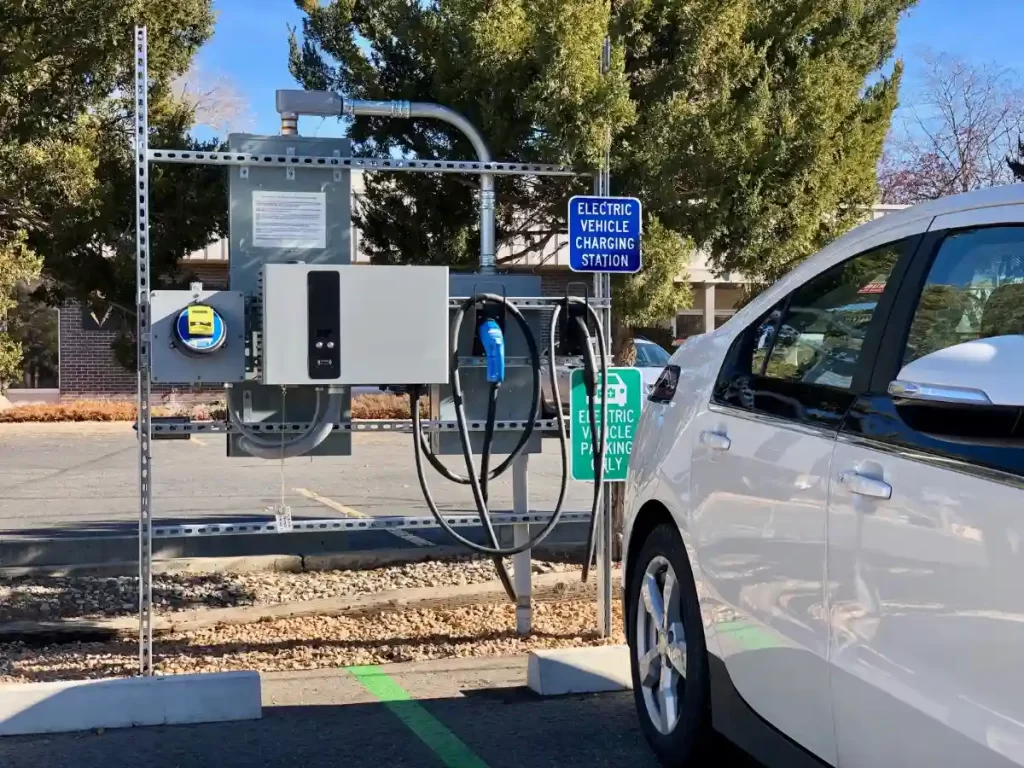
While people often charge at home overnight, there may be times when you need a quicker top-up. Planning for these scenarios involves:
- Understanding Your EV’s Fast Charging Capabilities: Know how fast your vehicle can charge using public fast chargers (Level 3) for when you need a quick boost.
- Locating Nearby Public Charging Stations: Know local public charging station locations for when you need an out-of-home charge.
Charging Time: A Balance of Speed and Convenience
By choosing the right type of charger and understanding the nuances of EV charging, you can greatly increase the convenience and efficiency of owning an electric vehicle. For more options, explore smart home gifts for Tucson.
The ability to charge at home not only adds to EV ownership ease but also ensures that your vehicle is always ready for your next journey.
In the next section, we will discuss the importance of professional installation and meeting compliance standards for your home EV charging setup.
Professional Installation and Compliance for Home EV Chargers
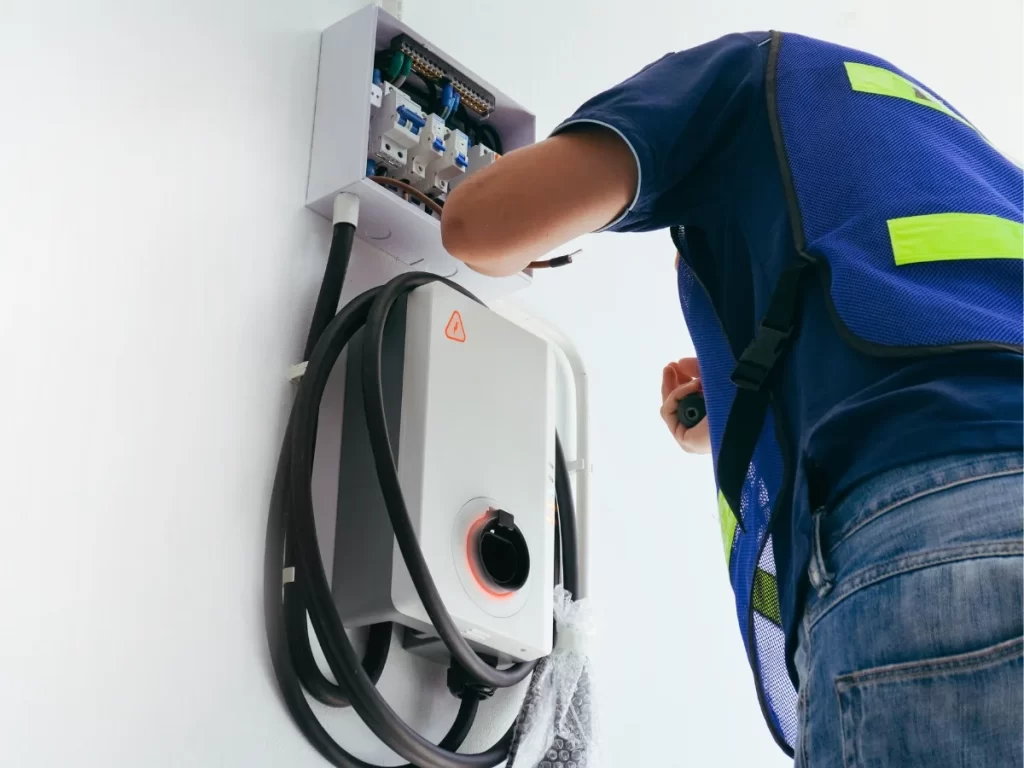
Installing an electric vehicle charger at home is more than just an upgrade; it is a step towards embracing modern, sustainable technology. However, this step demands professional expertise and adherence to certain compliance standards to ensure safety and efficiency.
This section delves into the importance of professional installation and understanding local regulations for your home EV charging system.
The Need for Professional Installation
While the idea of DIY may be tempting, installing an EV charger involves complex electrical work that goes beyond basic home improvement skills. Here is why professional installation is crucial:
- Electrical Safety: Working with high-voltage equipment can be dangerous. Trained professional electricians manage these risks and ensure that your installation is safe.
- Compliance with Standards: A licensed electrician will ensure that your installation complies with national and local electrical codes and standards, which is essential for the safety and legality of your home charging setup.
- Optimal Performance: Professionals can advise on the best location for your charger and set it up for maximum efficiency and convenience.
Navigating Local Building Codes and Regulations
Electric vehicle charging installations are subject to various building codes and regulations, which can vary by location. Here is what to consider:
- Permit Requirements: Many localities require permits for installing EV charging equipment. A professional electrician will typically handle the permit application process for you, ensuring that all the paperwork is in order.
- Inspection and Approval: After installation, an inspection by a local authority may certify that the installation meets all safety and compliance standards.
- Understanding HOA Rules: If you live in a community with a homeowners’ association (HOA), you will need to check if there are specific rules or restrictions related to installing EV chargers. For those living in Catalina Foothills, view our electrical services in Catalina Foothills.
Why Compliance Matters
Sticking to the required codes and regulations is not just about following the law; it also ensures:
- Safety: Compliance with building codes helps prevent electrical hazards, protecting your home and family.
- Insurance Coverage: If there is an electrical issue, having a code-compliant installation can be crucial for your insurance coverage.
- Resale Value: A professionally installed and compliant EV charger can be an attractive feature if you ever decide to sell your home.
Emphasizing Safety and Standards
Professional installation and strict adherence to compliance standards are non-negotiable aspects of setting up your home EV charger.
When you ensure you correctly follow these standards, you can enjoy the benefits of electric vehicle ownership with peace of mind, knowing that your charger is safe, efficient, and legally installed.
In the next section, we will explore the best practices for maintaining your electric vehicle’s battery, ensuring its longevity and optimal performance.
Maintaining Your Electric Vehicle’s Battery
A question people including yourself may have is how long electric vehicle batteries last.
Proper care of your electric vehicle’s battery is essential for its long life and top performance. Understanding how to care for your EV’s battery and knowing your electric vehicle batteries’ lifespans can not only extend its life but also its efficiency and reliability.
This section will guide you through the best practices for maintaining your EV battery, reflecting key insights similar to those discussed in relevant industry discussions.
Key Factors for Battery Health
Several factors play a vital role in keeping your EV battery healthy:
- Charging Practices: Do not let your EV’s battery drain completely. Frequent, shorter charges are generally better than longer charges from 0 to 100%.
- Understanding Charging Cycles: Every battery has a limited number of charging cycles. Repeated charging to full can strain the battery. We often recommend charging up to 80% daily.
- Temperature Considerations: Extreme temperatures can affect battery performance and lifespan. Parking your EV in a garage or shaded area can protect the battery from excessive heat or cold.
Tips for Prolonging Battery Life
To ensure a longer EV battery life, consider the following tips:
- Smart Charging: Use smart charging features, if available, to optimize charging schedules based on your driving habits. This helps in maintaining the battery’s health and can also be cost-effective.
- Regular Maintenance Checks: Like any vehicle, regular maintenance checks are crucial. For EVs, this includes battery health checks to spot any potential issues early.
- Balanced Usage: Mix up your driving habits. Both frequent short trips and occasional longer journeys can maintain good battery condition.
Battery Degradation: A Natural Process
A battery losing its strength over time is natural and you should expect it. However, you can slow this down with proper care:
- Monitoring Battery Health: Most EVs come with systems to monitor battery health. Keeping an eye on these can help you understand your battery’s condition and when it might need professional attention.
- Professional Servicing: If you notice a significant drop in your EV’s range or charging capacity, it is wise to have it checked by a professional. They can provide specific advice and services to help maintain or improve battery health.
Ensuring Optimal Performance
By following these guidelines, you can ensure that your EV’s battery remains healthy and efficient throughout your vehicle’s life.
Remember, the way you charge and care for your battery can make a significant difference in your electric vehicle’s overall performance and reliability.
In the next section, we will explore the incentives and rebates available for installing electric vehicle chargers, which can make EV ownership more affordable and accessible.
Incentives for Installing Electric Vehicle Chargers
Transitioning to an electric vehicle comes with various financial considerations, but there are numerous incentives and rebates available that can make installing a home EV charger more affordable than auto dealers.
Understanding these incentives can significantly offset the initial investment and ongoing costs associated with electric vehicle ownership.
This section delves into the types of incentives available and how to take advantage of them.
Federal, State, and Local Incentives
Incentives for electric vehicle charger installation vary by location and can come from multiple sources:
- Federal Incentives: The U.S. government often offers tax credits for installing EV charging infrastructure. These incentives can change, so it is important to stay updated on current offerings.
- State and Local Rebates: Many states and local governments provide their own set of incentives, such as rebates or tax credits, for EV charger installation. These can be in addition to federal incentives.
- Utility Company Programs: Some utility companies offer rebates or special rates for EV owners, especially those with vehicles placed in service. These programs might include reduced electricity rates for off-peak charging or rebates for purchasing and installing an EV charger.
How to Access These Incentives
To take full advantage of available incentives, consider the following steps:
- Research: Start by researching the incentives available in your area. Government websites, utility company pages, and EV-specific resources can provide this information.
- Understand the Requirements: Each incentive program has its own requirements and qualifications. Ensure you understand these to determine your eligibility.
- Keep Documentation: When you apply for incentives, you may need to provide proof of purchase and installation, so it is important to keep all relevant documentation.
Maximizing the Financial Benefits
While incentives can significantly reduce the home EV charging station costs, it is also worth considering the long-term savings:
- Reduced Fuel Costs: Charging an electric vehicle is generally cheaper than fueling a gasoline-powered car, leading to long-term savings.
- Increased Home Value: Homes with EV charging stations can appeal to a growing market of environmentally-conscious buyers, potentially increasing your home’s resale value.
Making EV Charging More Affordable
If you take advantage of incentives and rebates, the financial barriers to electric vehicle ownership become more manageable.
These programs not only make it more affordable to install a home EV charger but also contribute to the broader adoption of environmentally friendly transportation options.
In the next section, we will conclude by summarizing the key considerations for setting up your home for an electric vehicle and encouraging a sustainable future with EVs.
Conclusion: Embracing the Future of Electric Vehicles
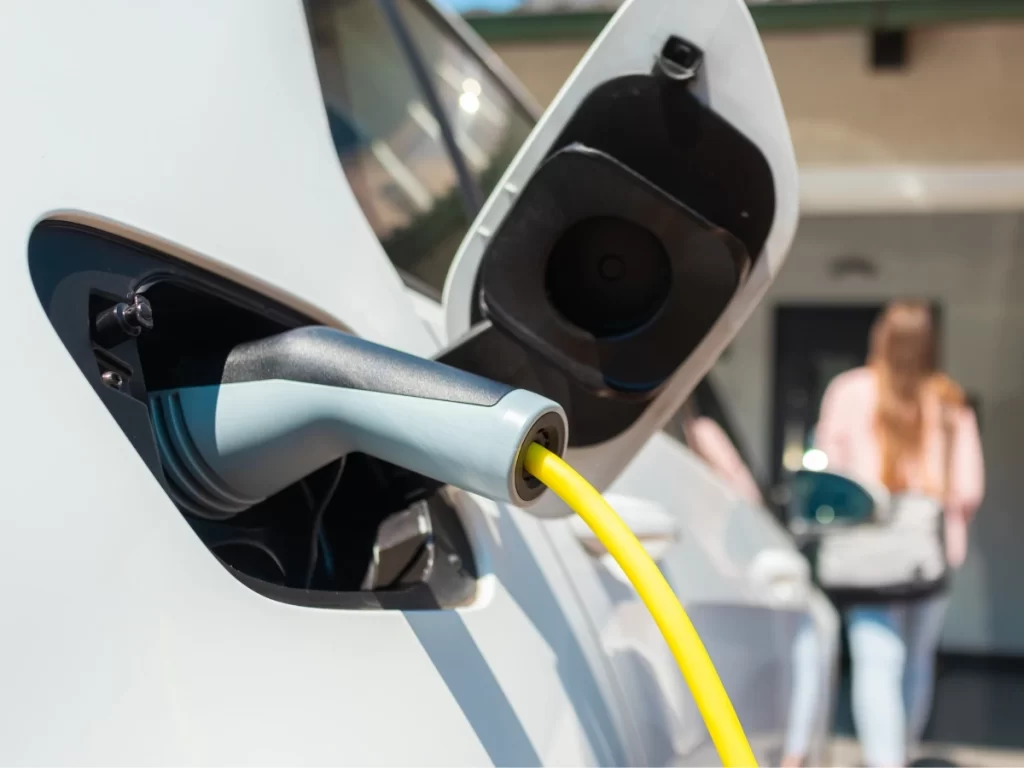
As we reach the end of our detailed guide on electric vehicle charging at home, it is clear that the shift to EV ownership is more than just a trend; it is a significant move toward a greener and environmentally friendly future in the Southwest U.S.
In this concluding section, we summarize the key points to remember when setting up your home for an EV and reflect on the broader impact of this choice.
Key Takeaways for Home EV Setup
- Selecting the Right Charger: Choose a Level 2 charger for an optimal balance between charging speed and home compatibility.
- Professional Installation and Compliance: Ensure safe and compliant installation by hiring professionals and following local regulations.
- Cost Considerations: Factor in installation costs, operational expenses, and potential savings through incentives and rebates.
- Battery Maintenance: Follow best practices for charging and battery care to prolong the life and efficiency of your EV’s battery.
- Making Use of Incentives: Explore and take advantage of available federal, state, and local incentives to make your EV charging setup more affordable.
The Broader Impact of Your Choice
By choosing to drive an electric vehicle and installing a home charging station, you are contributing to a larger movement which focuses on reducing carbon emissions and fossil fuel usage in Tucson and surrounding areas.
Electric vehicles offer a cleaner alternative to traditional vehicles, and as technology advances and becomes more accessible, we move closer to a future where sustainable transportation becomes the norm.
Looking Ahead
The journey towards electric vehicle ownership is thrilling, filled with new learning and opportunities. As technology evolves and more people adopt EVs, we can anticipate continued advancements in charging technology, battery efficiency, and overall vehicle performance.
By preparing your home for an electric vehicle today, you are not only setting yourself up for convenience and efficiency but also participating in shaping a greener, more sustainable future.
Driving into a Greener Future
As we conclude, remember that the transition to electric vehicles is about more than just personal convenience; it is about making a positive impact on our environment and society.
Equipping your home with an EV is a significant step towards a cleaner, more sustainable way of life. For more information, explore our comprehensive electrical rewiring services.
For expert home electrification services in Tucson, Arizona, or the surrounding area including electric vehicle charger installations, contact Done Rite Services or give us a call at 520-369-3966.
